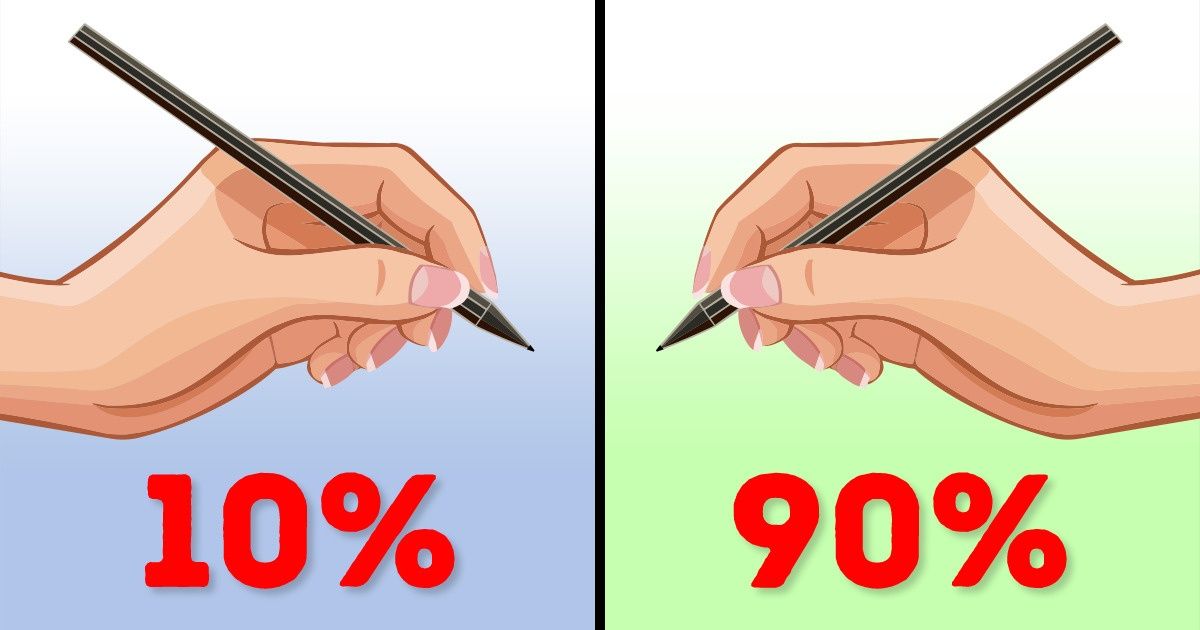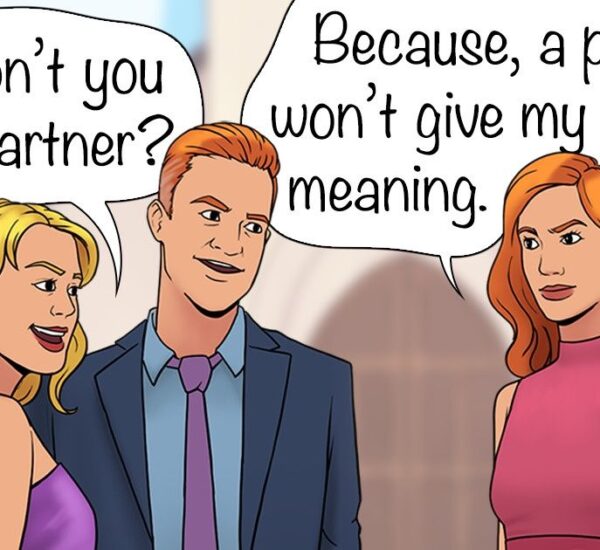Regardless of the conversation, people can’t always control the message their body is sending. Understanding the basics of body language can help you spot red flags before you commit your time and effort to a person.
The most important thing is to distinguish between shyness and dishonesty when reading body language. This is a great way to find out if Miranda next door is really as sweet as she pretends to be.
We investigate the different body language red flags, the purpose behind them, and how you can tell if you can trust someone.
Body Language Flags Show If You Can Trust Someone
They Avoid Eye Contact Or Rub Their Eyes So They Don’t Look Too Suspicious
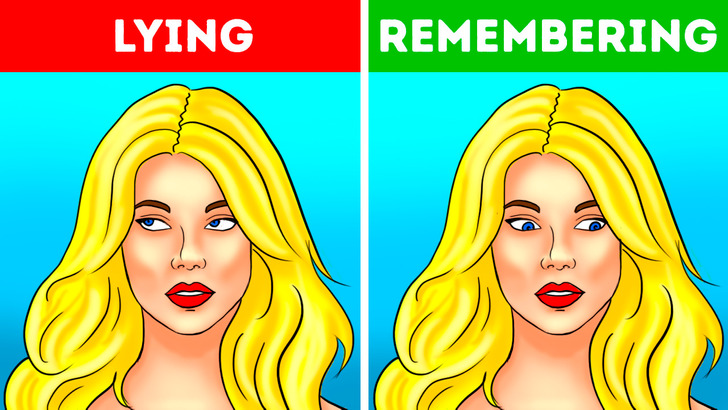
Shifting eyes is not always a sign that someone is lying. But if you notice that the person is constantly looking away (usually to the upper left or right corner of their eyes), they could be lying.
However, don’t confuse looking down with looking away. People often look down when trying to remember something. You can ask follow-up questions and ask them to reverse the story to find out if they are lying.
Most people are familiar with this technique and try to avoid eye contact in the first place. For example, most experienced poker players rub their eyes during tricks to create natural movements.
Healthy eye contact periodically veers in different directions during a conversation, along with expressions to respond to information.
They Are Always On The Phone To Avoid Confrontation
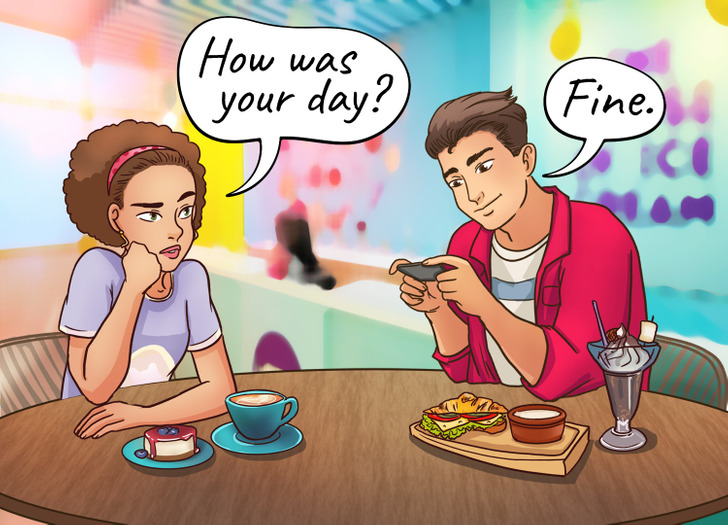
If you see someone’s eyes glued to the screen all day, it could indicate that they are afraid of a confrontation or worried that someone else’s messages will appear at any time.
It can be concerning if your partner or friend suddenly picks up this habit. For example, if they struggle to carry on a conversation during meals and spend time constantly checking for notifications, try to keep an eye on what they’re doing and confront them if necessary.
They Tend To Lean Away From You During Conversations
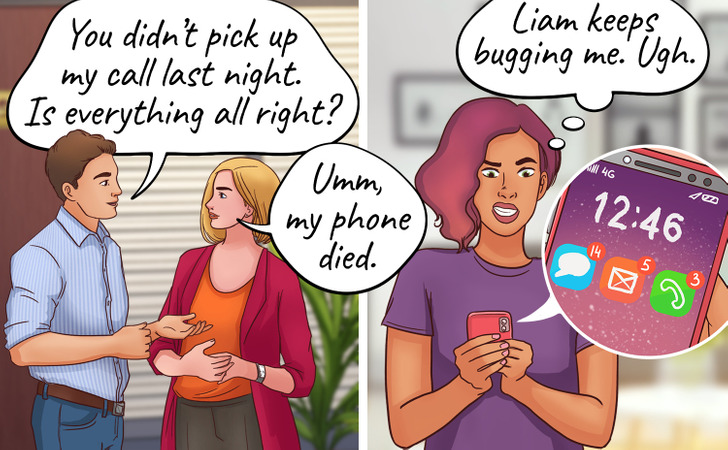
In general, people or couples tend to lean towards each other through the body, feet, or head during conversations. If you notice a change in their gestures and the way he responds to your questions, it could be a sign that they’re hiding something.
Sometimes this tilt can also be virtual where you have to wait more than 6 hours to get a response from them. People can use this technique to distance themselves from you.
It could also mean someone isn’t really interested in the conversation and would rather be somewhere else. In this situation, try to avoid putting too much pressure on the conversation and accept that this person is not worth your time.
Blinking Rapidly May Indicate Their Discomfort
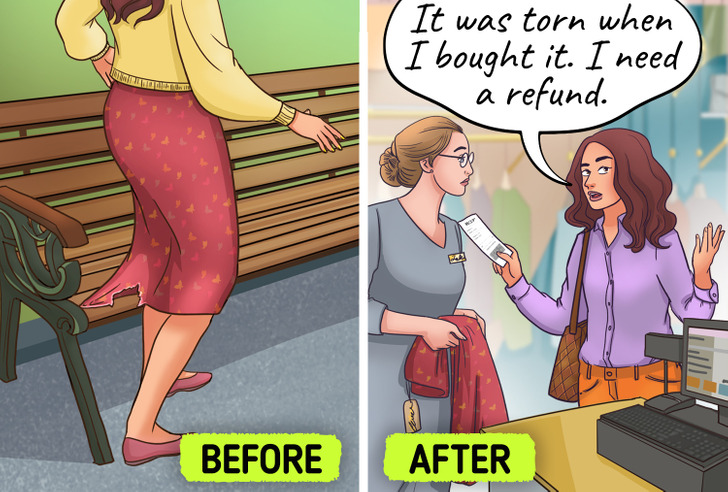
The blinking is natural. But pay attention to abnormal blinking, when someone blinks too much or too little. Blinking infrequently indicates that the person is trying to pretend to be someone they are not.
Whether it’s a false interest in the conversation or a lie, be on the lookout for this behavior when talking to other people. For example, an experienced magician might blink slower than usual to pretend to act natural for the next magic trick.
They Have Their Arms And Legs Crossed To Draw Attention Away From Them
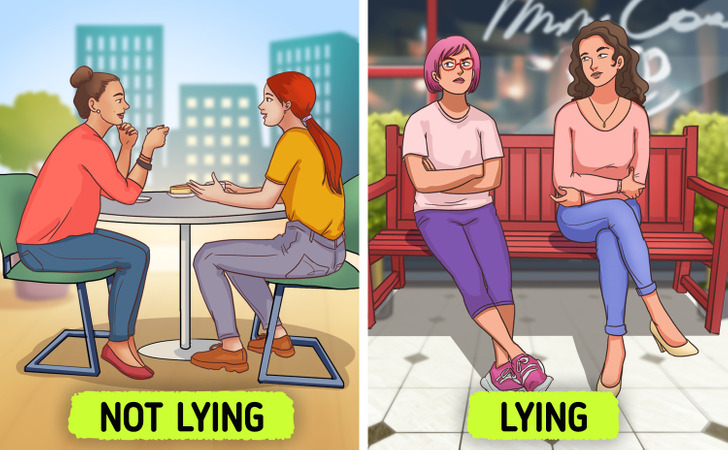
55% of our conversation is nonverbal, and arms and legs are a big part of it. Crossing your arms can mean defense or self-protection while crossing your legs can indicate discomfort with someone.
Subtle cues like spreading your arms can also make a person seem more manipulative and domineering.
People often use this body language unintentionally to distract themselves. As for verbal contact, they avoid talking about themselves and manage to return all the questions.
Have you experienced any of these red flags before? If yes, how did you handle it?
Share with us what other signs you use to decide whether to trust someone. Send them here – we’re all ears!
